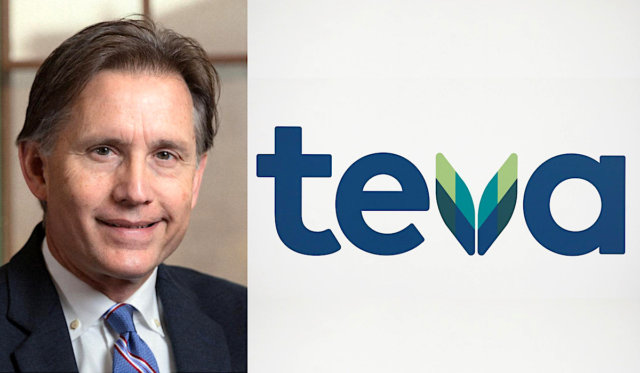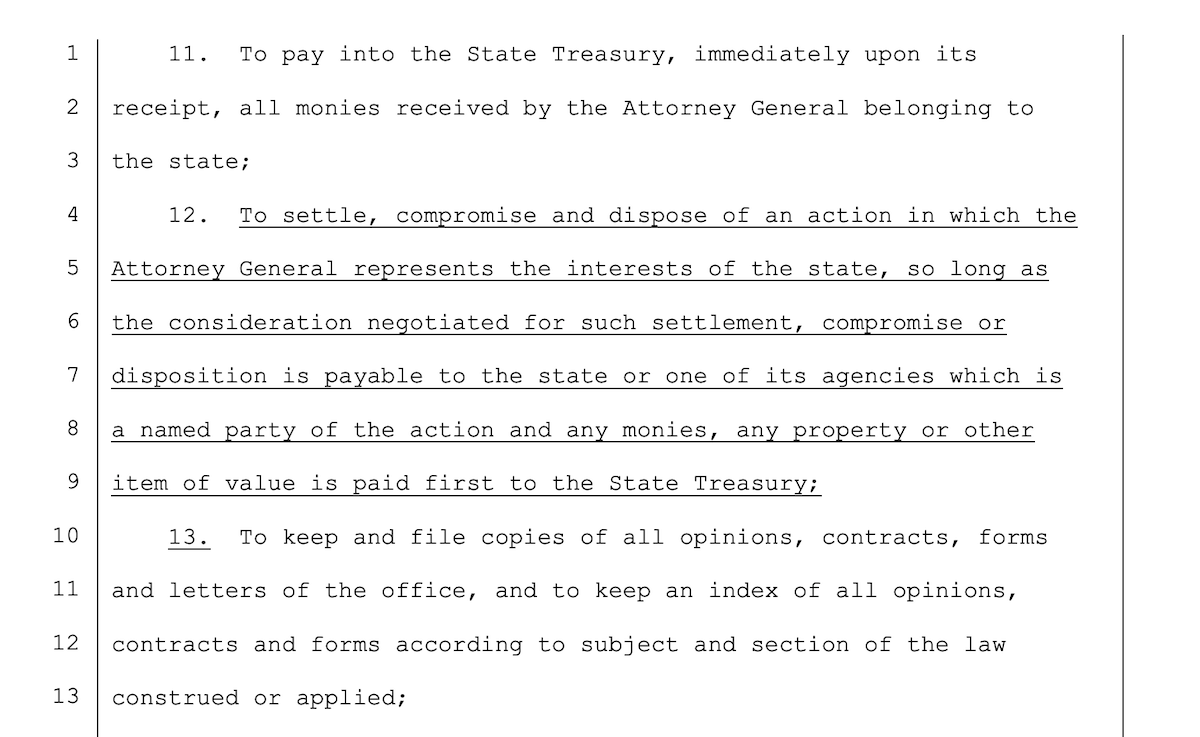
Oklahoma Attorney General Mike Hunter announced an $85 million settlement with Teva Pharmaceuticals this morning, two days before his trial against the company and other opioid manufacturers is set to begin. Hunter previously announced a settlement with Purdue Pharma, the details of which frustrated members of the Legislature and caused them to pass a new state statute specifying what the attorney general must do with proceeds of a settlement.
In a press release, Hunter’s office said terms of the settlement agreement with Teva and its subsidiaries “may take up to two weeks to finalize” but that “the money will go to the state once it’s received.”
“The funds will then be used to abate the opioid crisis in Oklahoma. A future announcement containing the specific terms of the agreement will be made at a later date,” the release stated.
Alex Gerszewski, Hunter’s communications director, told NonDoc that settlement dollars from Teva Pharmaceuticals will be deposited into the State Treasury. That detail is likely to please state lawmakers.
Gov. Kevin Stitt signed HB 2751 into law Thursday, the same day the Legislature announced its sine die adjournment effective May 31. The bill passed with an emergency clause meaning it became law immediately. It added new language into Title 74 that stipulates a duty of the attorney general:
To settle, compromise and dispose of an action in which the attorney general represents the interests of the state, so long as the consideration negotiated for such settlement, compromise or disposition is payable to the state or one of its agencies which is a named part of the action and any monies, any property or other item of value is paid first to the State Treasury.
“This bill clarifies the attorney general’s responsibilities to pay into the State Treasury the proceeds of any settlement or judgement when the state is a named party in the action,” Rep. Terry O’Donnell (R-Catoosa) said May 20. “As (settlements are) state property, the Legislature believes that it is their constitutional responsibility to appropriate litigation proceeds consistent with the needs of all Oklahomans.”
Hunter’s $270 million settlement with Purdue was criticized by lawmakers in both parties who felt it was inappropriate for the attorney general to designate the use of settlement dollars — in this instance, to establish an endowment for the OSU Center for Wellness and Recovery — without consulting the Legislature.
Hunter maintained that Purdue Pharma could have filed bankruptcy, meaning Oklahoma lacked leverage in negotiations over how Purdue Pharma would be willing to settle. Since its settlement with Oklahoma, Purdue has been sued by additional states including Pennsylvania.
Pennsylvania Attorney General Josh Shapiro said in April that Oklahoma got “a bad deal” in its $270 million settlement with Purdue Pharma.
“[About] $60 million went to attorneys fees, $12 million went to cities and counties, $0 went to the state, and the rest went to a foundation that’s going to help be set up by the Sackler family, the family that runs Purdue Pharmaceuticals,” Shapiro said on WESA, an NPR affiliate in Pittsburgh. “If I brought that deal back to Pennsylvania, I think you would skewer me on this program. That’s a bad deal, and it’s a bad deal for the commonwealth and not one I would make.”
Hunter: Companies to blame for ‘deadly crisis’
Hunter’s press release Sunday morning said the new settlement agreement “resolves current claims against Teva Pharmaceuticals, USA, Inc., Cephalon, Inc., Watson Laboratories, Inc., Actavis, LLC., and Actavis Pharma, Inc., F/K/A Watson Pharma, Inc.”
RELATED
‘Paid first to the State Treasury’: #okleg moves bill on AG settlements by Tres Savage
He said he and his team remain focused on the final defendant, opioid manufacturer Johnson & Johnson.
“Today’s announcement is a testament to the state’s legal team’s countless hours and resources preparing for this trial and their dedication and resolve to hold the defendants in this case accountable for the ongoing opioid overdose and addiction epidemic that continues to claim thousands of lives each year,” Hunter said in his statement. “Nearly all Oklahomans have been negatively impacted by this deadly crisis and we look forward to Tuesday, where we will prove our case against Johnson & Johnson and its subsidiaries.”
Teva Pharmaceuticals manufactures a generic version of OxyContin, available in 10, 20, 40 and 80 mg doses.






















